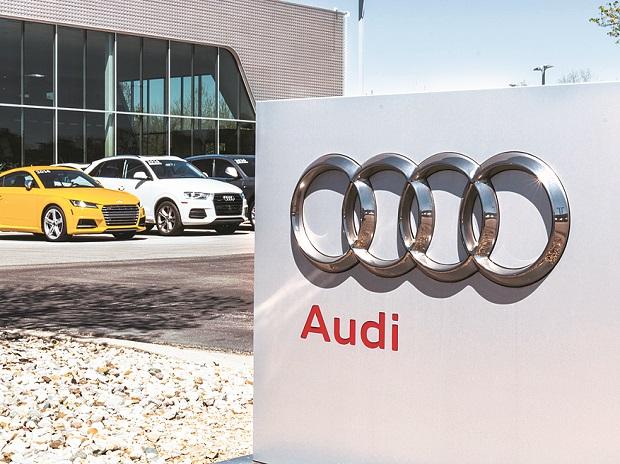Volkswagen's Audi and its Chinese state-owned partner FAW Group have received approval from Chinese authorities to start construction on their $3.3 billion electric vehicle joint venture plant, according to a government notice.
The planning regulator of China's northeastern province of Jilin said work on the plant, which will be based in the provincial capital of Changchun city, is planned to start in April and that the companies will invest a total of 20.93 billion yuan ($3.29 billion) in the plant.
The plant will start production in December 2024 and have the capacity to manufacture 150,000 cars a year, according to the regulator. Its statement also showed the approval was given on Feb. 11, and that the venture plans to produce three electric models, including Audi's e-tron SUV.
"The Audi FAW NEV project is an important cornerstone of Audi's electrification strategy in China," a Volkswagen spokesperson said, confirming the approval.
"We are consequently pushing forward the relevant works in this project. The construction of the plant is planned to start in the second quarter of 2022."
FAW did not immediately respond to requests for comment on Tuesday.
Audi, Volkswagen's premium automaker, signed a memorandum of understanding with FAW in October 2020 to jointly produce premium electric vehicles (EVs) in China, the world's largest car market.
In November, Audi said the plant was behind schedule due to a delay in approval by the relevant authorities.
The German car maker has a longstanding partnership with FAW to make combustion engine cars in Changchun and the southern city of Foshan.
Audi also plans to make vehicles with Shanghai-based automaker SAIC Motor, with a goal for electrified vehicles to account for a third of Chinese sales by 2025.
(Reporting by Brenda Goh; Editing by Tom Hogue and Muralikumar Anantharaman)
(This story has not been edited by Business Standard staff and is auto-generated from a syndicated feed.)
 Dear Reader,
Dear Reader,
Business Standard has always strived hard to provide up-to-date information and commentary on developments that are of interest to you and have wider political and economic implications for the country and the world. Your encouragement and constant feedback on how to improve our offering have only made our resolve and commitment to these ideals stronger. Even during these difficult times arising out of Covid-19, we continue to remain committed to keeping you informed and updated with credible news, authoritative views and incisive commentary on topical issues of relevance.
We, however, have a request.
As we battle the economic impact of the pandemic, we need your support even more, so that we can continue to offer you more quality content. Our subscription model has seen an encouraging response from many of you, who have subscribed to our online content. More subscription to our online content can only help us achieve the goals of offering you even better and more relevant content. We believe in free, fair and credible journalism. Your support through more subscriptions can help us practise the journalism to which we are committed.
Support quality journalism and subscribe to Business Standard.
Digital Editor

RECOMMENDED FOR YOU